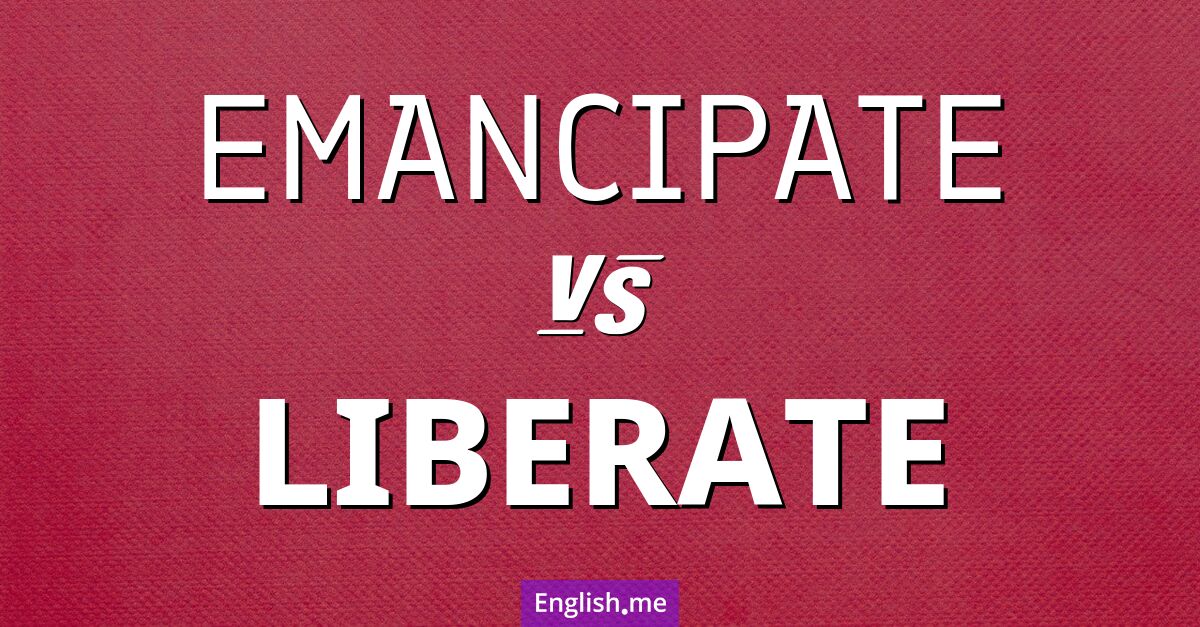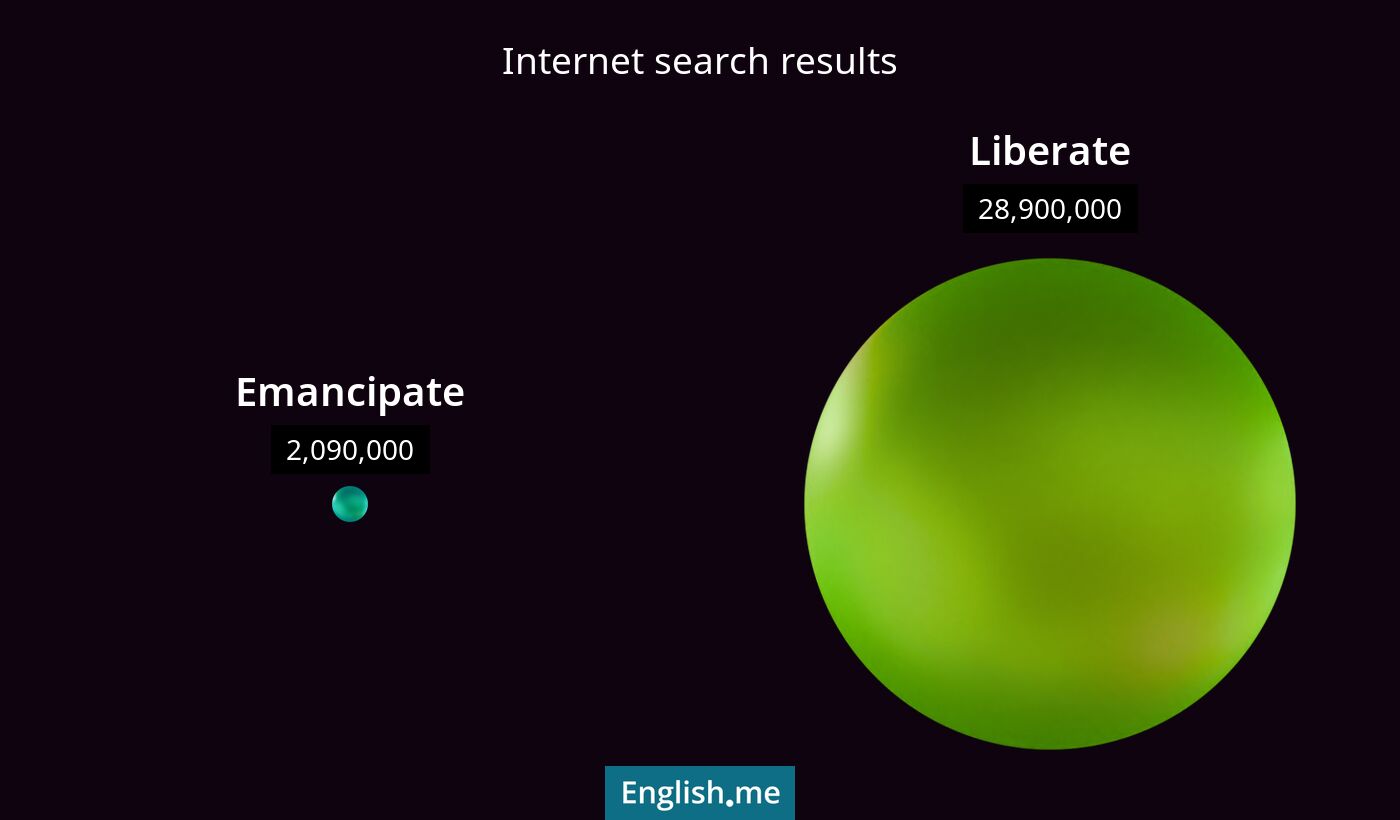"Emancipate" vs. "liberate": words of freedom explored
Reviewed and edited by  Lloyd Cooper 25/10/2024, 01:59
Lloyd Cooper 25/10/2024, 01:59
English.me team member

 What is similar?
What is similar?
Both "emancipate" and "liberate" refer to the act of freeing someone or something from control, restraint, or restriction. They are often used interchangeably in contexts involving freedom and release.
 What is different?
What is different?
"Emancipate" is often used in contexts involving social, legal, or political freedom, such as the emancipation of slaves or minors. "Liberate" is more general and can refer to freeing in a broader sense, often used in military contexts or when referring to freeing territories or people from occupation.
 Which one is more common?
Which one is more common?

 Examples of usage
Examples of usage
Emancipate- The government passed a law to emancipate the enslaved people.
- Many young adults seek to emancipate themselves from their parents before reaching the age of majority.
- The allied forces worked to liberate the occupied cities during the war.
- The new policy aims to liberate small businesses from excessive regulation.

 English
English español
español française
française italiano
italiano deutsche
deutsche 日本語
日本語 polski
polski česky
česky svenska
svenska Türkçe
Türkçe Nederlands
Nederlands